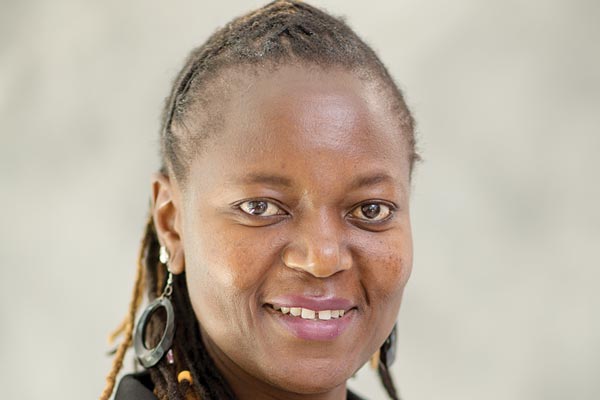
IT is not enough for the political leadership to merely give speeches about fighting corruption and setting up anti corruption bodies if nothing tangible is seen and achieved. Zimbabweans are not complicated people.
They only want to see corrupt officials being convicted and going to jail and paying stolen loot back and seeing election pledges fulfilled. The current leadership is not seen as being sincere about fighting corruption so confidence has been lost even by people who were optimistic about the post Mugabe leadership.
Zimbabwe’s leaders can learn a lot from China because it is a good example of what can happen when political leaders are sincere and personally committed to fighting corruption. In his series of books The Governance of China the Chinese President Xi Jinping outlines his government’s hard line approach to fighting corruption. Since 2012 more than 100 000 corrupt Chinese officials have been arrested and penalised.
The sincerity is tangible and visible through measures like deterrent fines, confiscation of property, imprisonment and in very severe cases death sentences. In March 2018 Zhang Zhongsheng (65) a former deputy mayor of Lualong a Chinese mining city became the first public official to be sentenced to death after being convicted of bribery charges involving US$150 million. President Jinping publicly committed to fighting corruption when he came to power in 2012 and he kept his word. His sincerity and personal commitment made all the difference. Zimbabwe’s leadership, if it is sincere, can take leaves from his books.
In China political will has gone a long way to fight corruption even if the toughest measures can never totally eradicate it Radical amendments to the law and legal procedures were undertaken and replaced pussyfooting with offenders and wrist slapping and catching and releasing. Xin Jin Ping outlines the tough measures taken to restore discipline and cleaning the Communist party as the first punch in the fight.
Anti-corruption efforts had been on the agenda of successive Chinese leaders since 1978 when radical economic structural reforms started.
Jinping has been the most successful because in 2012 when he took over corruption had reached alarming levels. Senior Communist party officials ran mafia type criminal rings and amassed massive power and wealth through trading bribes for political favours. Local businesses paid bribes to them to secure lucrative government contracts as well as subordinates seeking promotion to higher offices.
Some party officials and their families had even become more powerful and influential than the President by controlling the most lucrative government contracts and tenders. Jinping took off kid gloves and destroyed untouchable big wig criminal rings, vowing that no one would be left punished no matter how senior and close to him they were.
- Chamisa under fire over US$120K donation
- Mavhunga puts DeMbare into Chibuku quarterfinals
- Pension funds bet on Cabora Bassa oilfields
- Councils defy govt fire tender directive
Keep Reading
Xin Jinping said nothing remarkable or unique that has not been said by every leader of every country about corruption. The only difference was his sincerity and commitment. Under his leadership China went beyond talking until everyone could see and feel the difference.
Xi Jinping pays tribute to his predecessors Mao Zedong (1893-1976) and Deng Jaoping (1904- 1997) and senior party figures Hu Jintao and Jiang Zemin. All four were Marxists and revolutionary military strategists and theorists. Mao was one of the main founders of the Chinese People’s Liberation Army and founder of the Mao Zedong Thought and the chief architect of socialist reform which triggered the modernisation of China’s economy. Deng was the architect of the Deng Xiaoping Theory in whose roots the war on corruption began. The Deng Theory addressed the symptoms and root causes of corruption and its punishment and prevention. The 2012 18th National Congress of the Communist Party committed to delivering a moderately prosperous China by 2020. Corruption was deemed the biggest threat to the vision so it had to be dealt with decisively.
Corruption is a hot political potato. Corrupt activities support the livelihoods and political careers of many highly influential people so only the most courageous leaders have the guts to tackle it because the political risk is too great.
Very few leaders dare to deal with it decisively and risk their political careers. Many leaders start off with the best intentions but they usually retreat and buckle because of the resistance and pressure by powerful cartels and individuals who give them critical financial support. Many leaders are personally compromised and conflicted that they dare not risk the embarrassment and political loss so they indulge in safe weak efforts that only entrench the problem.
For now the Zimbabwean leadership has failed to convince the public of its sincerity because there is a culture of insincerity, apathy and indecisiveness.
For example every year the Auditor-General reports on the massive corruption in government ministries and state enterprises but nothing is ever seen to be done to address the myriad of issues raised despite the recommendations given.
Thus the corrupt dealings of well connected people and public sector officials continue unabated while the public rightly grows more sceptical and bitter.
Miriam Tose Majome is a lawyer at Veritas and she writes in her personal capacity. She can be contacted on [email protected] and Twitter @MajomeMiriam.











